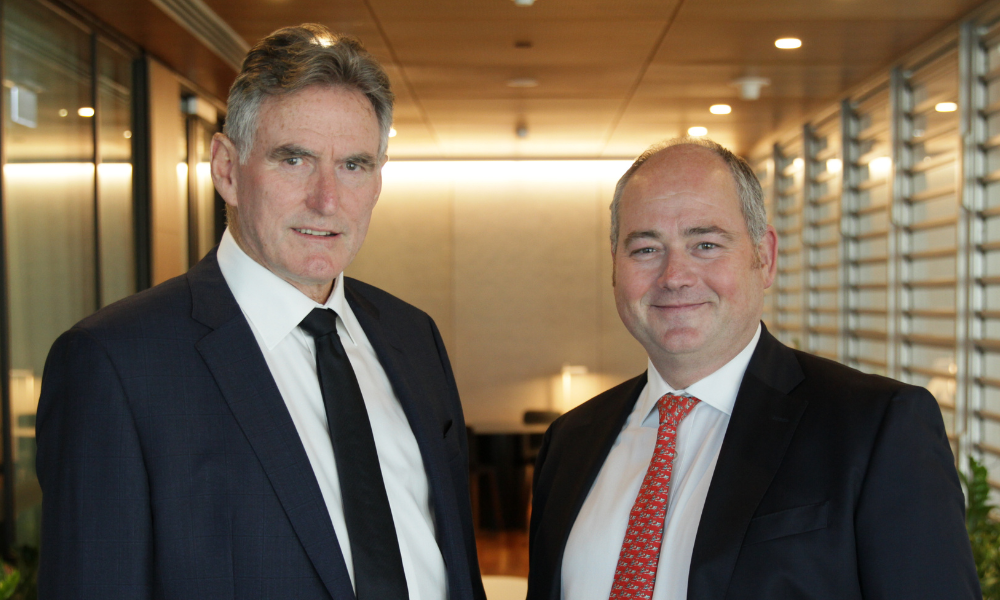Inflationary pressures, housing crisis could stifle growth

Leaders at the National Australia Bank (NAB) have issued cautionary remarks regarding the nation's economic trajectory, highlighting concerns over inflationary pressures and a looming housing crisis that could stifle growth prospects.
In a recent interview on ABC Radio National, outgoing NAB CEO Ross McEwan and his successor, Andrew Irvine, adopted a measured stance, acknowledging areas of stress within the business landscape and among borrowers.
McEwan (pictured above left), who is set to depart his role on April 2, noted a return to more typical profit levels for the bank following a surge in 2023 attributed to rising cash rates, according to a report by The Australian. Concurrent with his impending departure, McEwan has secured new board positions with mining giant BHP and British defence and technology firm Qinetic.
NAB reported a 17% decline in first-quarter profits on Feb. 21, signalling ongoing challenges within the economic landscape. McEwan acknowledged the tightening economic conditions but emphasised that many NAB customers remain financially stable.
However, incoming CEO Irvine (pictured above right) expressed concerns about certain sectors, particularly landlords in office locations grappling with interest rate challenges. Irvine highlighted a pullback in demand for office space as companies continue remote work arrangements, underscoring the nuanced nature of the economic landscape.
Read next: NAB reports strong start to financial year
Irvine cautioned against premature optimism regarding inflation, citing ongoing struggles faced by consumers.
“Inflation is awful; you only have to talk to consumers who are struggling with the price of fuel, the price of groceries,” he told ABC Radio National.
However, Irvine expressed hope for a downward trend in inflation, pointing to recent favourable inflation data from the United States as a potential indicator for Australia.
“It’s in everybody’s interest to get inflation under control,” he said. “I am optimistic we are getting it under control.”
McEwan echoed Irvine's sentiments, expressing optimism for a reduction in inflation by the end of 2024 but indicating that interest rate adjustments may not follow until the final quarter of the year.
“I think Australia is still in a good position, we’ve got an economy that is growing stronger … but it’s slowing down and it’s feeling like it’s really slowing down,” he said. “I’ve been very optimistic we won’t see a recession, but we’re going to see two quarters of very low growth before it starts moving.”
Both McEwan and Irvine highlighted challenges within the housing market, noting significant undersupply and barriers to construction. McEwan stressed the need for expedited government approvals to address housing shortages effectively.
Have something to say about this story? Let us know in the comments below.



